Lawmaker Says Iran's Government Lies While Country Sinks Into Misery
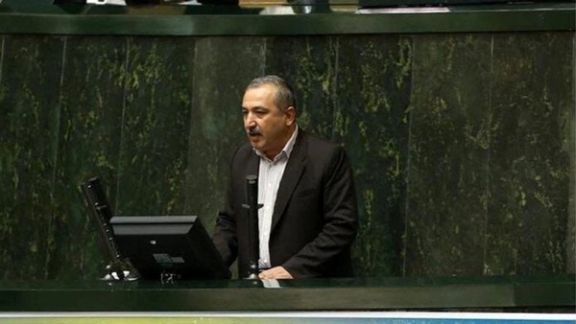
A member of Islamic Republic's parliament has strongly criticized the performance of the government as the economic crisis worsens, with little hope on the horizon.

A member of Islamic Republic's parliament has strongly criticized the performance of the government as the economic crisis worsens, with little hope on the horizon.
Jalal Mahmoudzadeh in a tweet on Wednesday slammed the failure of President Ebrahim Raisi and wrote: "We have reached the current situation while the president submitted seven thousand pages of plans during his election campaign.”
He then listed examples of hardships people face, such as " long queues for goods, chicken and bread, multifold increase in prices, and a nearly 100% inflation".
The member of parliament implicitly criticized the Islamic Republic's authorities for attributing many domestic problems to "foreign powers" adding that "If we do not destroy the dignity of our own people, no power outside is capable of doing so."
About two weeks ago, Mahmoudzadeh slammed the loss of 9 million jobs in cyberspace due to restrictions on social networks stating that the incumbent government "looks directly in the eyes of the people and lies".
The most recent official report by the Statistics Center of Iran shows the 'misery index' in eight provinces is above 60% and the rest of the provinces are above 55%.
The misery index is an economic indicator that is obtained by adding the unemployment rate to the inflation rate on an annual basis, and its upsurge also increases the risk of social harm.
Amid the high inflation, social welfare has deteriorated in Iran in the last five years. The official figures show that the misery index has increased from 19.3 in 2016 to 57.7 percent.
The Iranian regime, which is expanding its disputed nuclear program has failed to conclude a new agreement with the West to have US sanctions lifted, which could help reduce economic pressures.
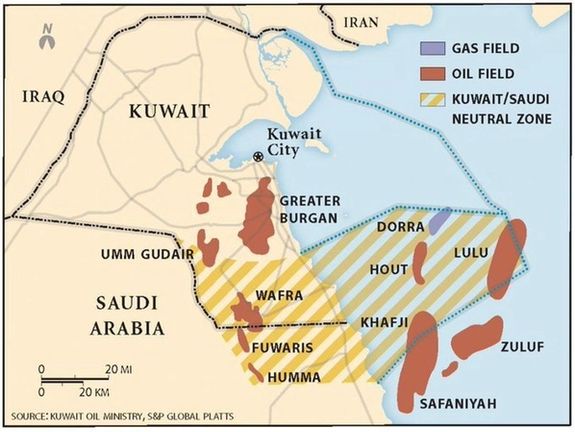
A disputed maritime field in the Persian Gulf is becoming a litmus test for the recent détente between Tehran and Riyadh as controversies surrounding it escalate.
Following weeks of bold remarks by Saudi and Kuwaiti officials insisting on their "exclusive rights" in the offshore field, Iran has shown a subdued reaction.
Oil Minister Javad Owji simply said on Wednesday that the foreign ministry will follow up on the Arash/Durra gas field.
Called Arash in Iran and Durra or Dorra by Saudi Arabia and Kuwait -- the offshore field was discovered in 1967 and is estimated to have a total proven reserves of around 310 million barrels of oil and 20 trillion cubic feet of gas.
Owji's low-key reaction followed comments from Kuwait’s Oil Minister Saad Al Barrak on Sunday who reiterated that Iran has no right over the maritime field located in a divided area, and called on the regime to validate its claim to the field by demarcating its own maritime borders first.
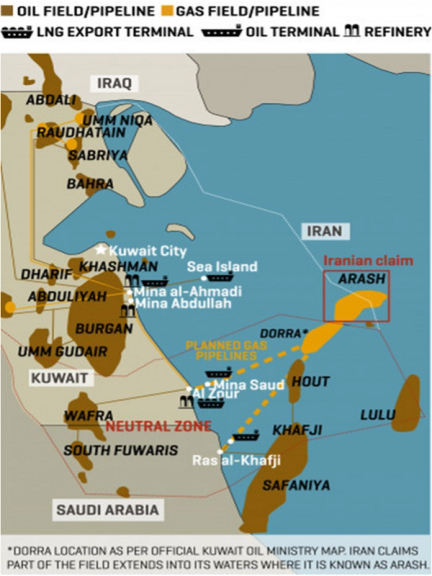
"Until this moment, this is an exclusive right of Kuwait and Saudi Arabia in the Durra field, and whoever has a claim must start demarcating the borders. And if it has a right, it will take it according to the rules of international law," Al Barrak said, adding that "The other side (Iran) has claims that are not based on a clear demarcation of the maritime borders.”
The Islamic Republic, which usually is extremely vocal about claims over its territory, has been mysteriously reluctant to speak out about the renewed claims, with Foreign Ministry spokesman Nasser Kanaani only saying on Tuesday that talks about the country’s maritime demarcation are underway with Kuwait. According to him, the most recent legal and technical talks about maritime boundaries between Iran and Kuwait took place in March.
The reluctance to rebuff the claims follow the recent détente between Tehran and Riyadh, making the regime hesitate to react strongly in fear of ruining the recently resumed ties following a China-brokered deal.
Adding insult to the injury, Iran’s close ally Russia has also sided with Arab states of the Persian Gulf in another contentious issue: the sovereignty over the three Persian Gulf islands of Abu Musa, the Greater and Lesser Tunbs, which the United Arab Emirates claims sovereignty over.
The recent developments have become a double-edged sword as the regime is isolated in the international arena and losing face within the country.
Qasem Mohebbali, a former senior diplomat and head of the Middle East division of the foreign ministry, criticized the regime’s foreign policies as the reason why Iran’s allies are teaming up with its regional rivals.
Mohebbali told Entekhab new website in Tehran last week that in keeping with historic trends, China and Russia care more about their relations with Arab countries than with Iran. “Apparently, Iran's friends do not pay much attention to Iran's demands and pay more attention to the rivals’ [Arab] demands,” he said.
The former diplomat showed how hand-tied the regime is in its current international position by his veiled threats. “It is crucial that Russia knows if it pursues such a policy, Iran can likewise adjust its policies on issues such as Crimea and Ukraine,” he said.
The regime has reacted cautiously. In his tweet about this week’s support from Moscow for the UAE’s claims over the three islands, Iranian Foreign Minister Hossein Abdollahian only said that Iran will not tolerate threats against its “independence, sovereignty and territorial integrity”.
On Monday, Chinese Ambassador to Kuwait Zhang Jianwei said the issue of Arash/Durra gas field should be settled through diplomatic dialogue.
Regime loyalists have criticized the government’s inaction vis-a-vis the project. Chairman of the Board of Directors of the Association of Iranian Oil and Gas Drilling Companies, Hedayatollah Khademi, told ILNA news last month: “It seems that we have surrendered the joint fields to the neighbors.”
Highlighting the fact that Riyadh has significantly developed and extracted from joint fields such as Arash/Durra, Farzad-A, Farzad-B, and Forouzan despite the fact that Iran dug the first exploratory wells in the fields, he said, “We have not done anything," accusing the Iranian government of sitting idle in the face of the encroachment.
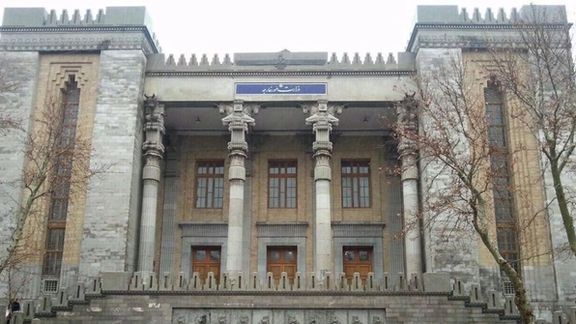
Iran's foreign ministry summoned the Russian envoy to Tehran over Moscow's support for the United Arab Emirates' claim over three Persian Gulf islands.
In a statement issued on Wednesday, the Iranian foreign ministry said Tehran protested Russia's challenging of Iran’s ownership of Greater Tunb, Lesser Tunb, and Abu Musa islands in the Persian Gulf asking Russia to correct its position on the issue.
In a joint Russia-GCC statement at the sixth joint ministerial meeting of the strategic dialogue between the Persian Gulf Cooperation Council (GCC) and the Russian Federation, held in Moscow on Monday, ministers affirmed their support for the United Arab Emirates which, like Iran, claims sovereignty over the islands.
The statement called for "bilateral negotiations or the International Court of Justice, in accordance with the rules of international law and the United Nations Charter, to resolve this issue in accordance with international legitimacy".
Iran's foreign ministry spokesperson Nasser Kanaani, on Tuesday rejected the claims, saying the islands “eternally belong to Iran and such statements are inconsistent with Iran’s friendly relations with its neighbors,” referring to the detente between Iran and its neighbors the UAE and Saudi Arabia.
The three Persian Gulf islands have historically been part of Iran, proof of which can be corroborated by historical and geographical documents. However, the United Arab Emirates has repeatedly laid claim to the islands, describing the situation as “the continued occupation by the Islamic Republic of Iran.”
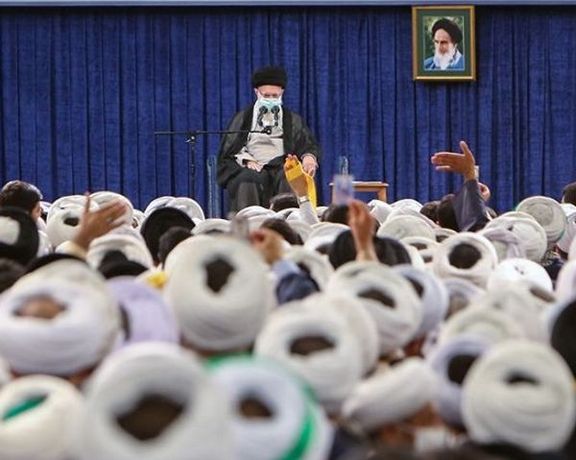
Despite evidence of the use of Iranian drones by the Russian army, Iran’s Supreme Leader holds American arms companies responsible for the continued war in Ukraine.
Despite Iran’s denials, numerous reports show that the Russian army has used hundreds of Iranian-made drones to bomb Ukraine's infrastructure and civilians.
However, in his meeting with seminary students and religious missionaries on Wednesday, Supreme Leader Ali Khamenei said: "They [the US] are ready to victimize a nation like the poor homeless nation of Ukraine, so that the pockets of the American arms companies will be filled," he said.
Elsewhere in his remarks, Khamenei said "the interests of Western arms production and sales companies lie in the continuation of the war in Ukraine."
Last week, a new report by two Russian investigative media revealed the preparations for the production of Shahed kamikaze drones in the territory of Tatarstan in western Russia.
The foreign and defense ministers of NATO members, in their numerous meetings, especially in recent months in Bucharest, Madrid and also at the Ramstein Air Base in Germany, asked Iran to refrain from delivering more weapons and drones to Russia.
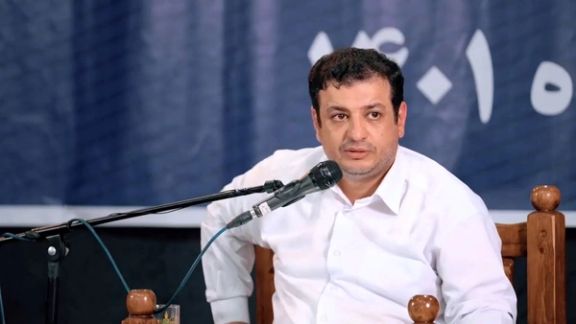
The ban on Iranian propagandist Ali-Akbar Raefipour leaving Saudi Arabia after the Hajj pilgrimage shows in spite of the recent detente between the two nations, tensions persist.
“Every Iranian who enters Saudi Arabia is terrified about what would happen to him," he said in a statement. "We fought an eight-year war with Iraq, but today millions of Iranians go to religious sites there with no complications. So, the governments of Iran and Saudi Arabia must resolve such issues as soon as possible.”
Unconfirmed reports say the hardline regime figure was arrested at Jeddah airport because of using a fake passport; however, in his statement released by the Masaf Institute, a religious, hardliner organization founded and directed by Raefipour and linked to the IRGC, he denied the claim as "rumors". "It must be resolved once and for all," he said.
Iran’s Foreign Ministry Spokesman Nasser Kanaani confirmed the ban on Monday, claiming Raefipour was not arrested, though he is unable to leave the country, and that Iran's embassy is trying to settle the problem.
In an audio file he released, Raefipour presented more conspiracy theories blaming “the Zionists and the enemies” for such “rumors”.
Hardliner Raefipour promotes apocalyptic views based on Shiite beliefs and the coming of promised savior Mahdi.
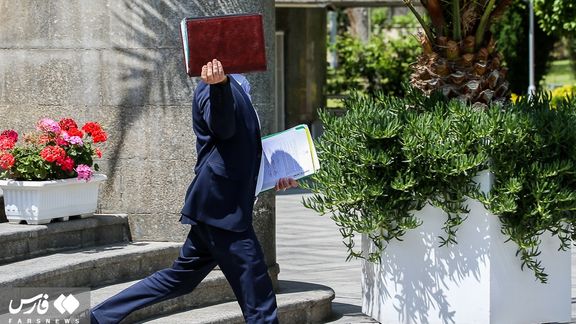
A moderate news website in Iran says the country's hardliners are going out of their way to send their supporters who are not qualified as ambassadors abroad.
In an article entitled "Ambassadorial positions under the hammer," Entekhab news website cited the recent appointment of midwife and city councilwoman Massoumeh Abad as Iran's ambassador to Finland as an example.
Entekhab stated that Abad's appointment undermined the long-standing principles observed in ambassadorial appointments. Many former diplomats and media outlets as well as social media users have lashed out at the Iranian Foreign Ministry for appointing a midwife as an ambassador.
According to Entekhab, the appointment disregarded the Foreign Ministry's stated policy of promoting "economic diplomacy," which aimed to send diplomats capable of expanding Iran's economic relations with other countries. Despite the sanctions imposed on Iran, the country is seeking ways to circumvent them and improve its struggling economy by expanding trade.
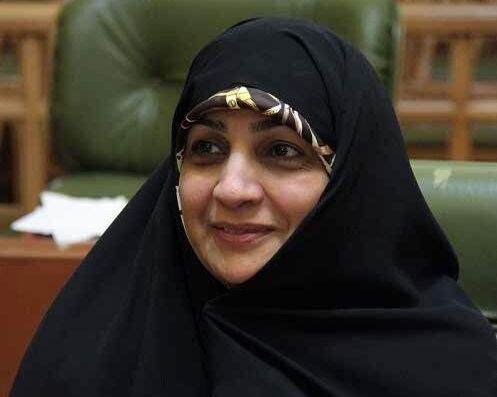
This situation is exacerbated by the fact that Tehran currently lacks ambassadors in major European capitals, including London, Paris, Berlin, and Stockholm. Entekhab highlighted this as evidence of the Foreign Ministry's lack of understanding regarding the importance of ambassadors during this critical period. Alternatively, it may reflect conflicts among different power centers and political factions in Iran, all vying for a share of influence, including control over Iran's embassies abroad.
The website argued that President Ebrahim Raisi's pledge to boost economic diplomacy could only be achieved by sending qualified diplomats abroad, well-versed in diplomatic knowledge and economic expertise. However, the reality has contradicted Raisi's declared ideals.
For over a year, President Raisi has faced extensive criticism for his handling of the economy, which has plunged further into crisis. He has been accused of mismanagement, appointing inappropriate individuals to top positions, and relying on false promises to buy himself more time.
For over a year, President Raisi has faced extensive criticism for his handling of the economy, which has plunged further into crisis. He has been accused of mismanagement, appointing inappropriate individuals to top positions, and relying on false promises to buy himself more time.
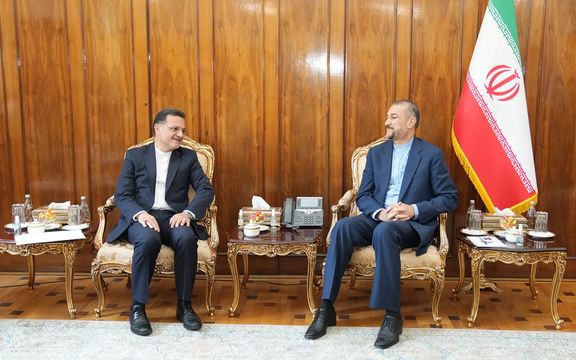
Mohsen Bakhtiar, Iran's new ambassador to Beijing, previously held a position in the Ministry of Energy, unrelated to diplomacy. The website also criticized Bakhtiar for lacking the necessary linguistic and diplomatic expertise required for such a significant role in a key country. His knowledge of foreign relations and ability to employ appropriate diplomatic tools are also questionable.
Entekhab further highlighted the appointment of former Central Bank Governor Ali Salehabadi as ambassador to Qatar, which was deemed even more perplexing than the other two appointments. This move seemed to be a mere face-saving measure for the former banking official who lost his position due to Raisi's impromptu decision. Raisi believed that replacing the central bank governor would solve Iran's economic problems.
By appointing an inexperienced individual as ambassador to a crucial region where diplomatic relations have recently gained momentum, the Foreign Ministry demonstrated a lack of understanding regarding Doha's significance in the nuclear negotiations and the restoration of Tehran's ties with Arab capitals.
Moreover, the absence of ambassadors in major European capitals indicates that the government fails to grasp the importance of those countries. Relations with European nations deteriorated during the recent nationwide protests in Iran, further isolating the Islamic Republic. Entekhab argued that by not dispatching ambassadors to these countries, Tehran has deprived itself of the leverage necessary to counter diplomatic and political pressures.
According to Entekhab, the failure to appoint chief diplomats to these European capitals has significantly diminished Iran's bargaining power in international relations.